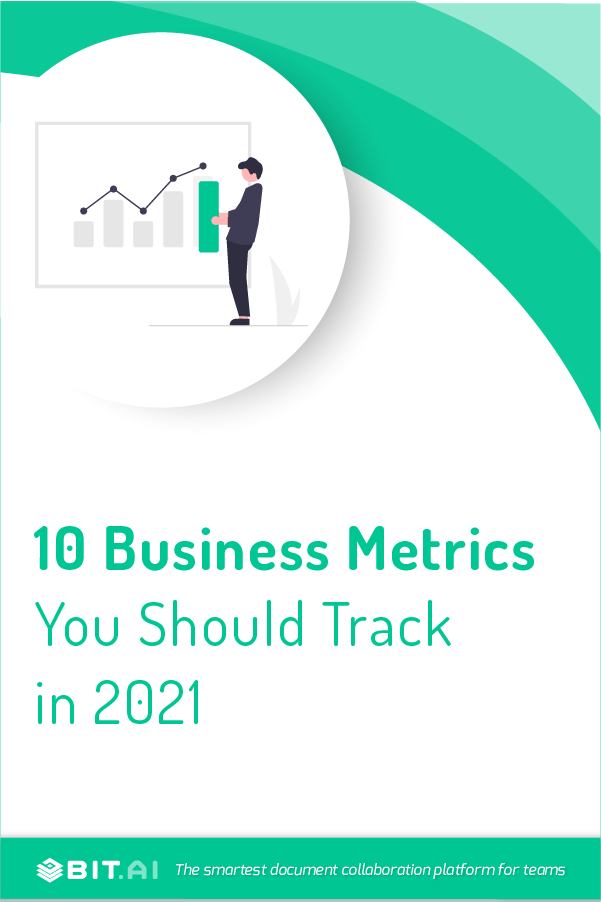Is your business is looking for ways to track its performance but doesn’t know where to start? Your search ends here! We have curated a list of important business metrics that you must measure! Keep reading…
If you own a business, chances are high that you want to deliver high-quality products and receive staggering sales and customer satisfaction from them. But this can’t happen overnight!
For you to improve your business offerings, you need to analyze key data and measure every single step you take from investment to marketing or sales.
….and this can’t be done without business metrics.
Business metrics help you track and measure your performance and make sure you optimize it. Metrics will reflect and support every aspect of your business to ease your decision-making process.
Depending on your business goals, you can choose the business metrics that fit best. Once set, these metrics will help you challenge your firm to do better.
In this blog, we’ll take a closer look at these business metrics and how they help your business grow.
What Are Business Metrics? (Definition)
A business metric is a performance indicator, it is a quantifiable measure of any specific component of your business.
Using metrics can be a healthy practice to assess and monitor your business goals and see if things are going according to plan.
Any aspect of your business can be quantified, from your revenue stream to employee retention. But what should your business track?
Well, truth be told – you’ll have to decide that based on your goals. There are so many metrics available, that you may easily get lost in the noise.
But don’t worry, we’ve picked the top 15 business metrics to get you going and help you stand out from your competitors.
You don’t need to use all the metrics but we’re sure that most of them will come in handy, for any business.
How Are Business Metrics Beneficial For Your Company?
To deliver quality service or products, you need to be well informed, and to be informed, you need to utilize effective metrics.
The wide range of metrics makes it possible for any business to smartly and accurately track their strategies, be it finance, marketing, competitors, or customer expectations.
If it has a part in your business, then there is a business metric for it!
Some reasons why business metrics are important:
1. Helps in Tracking Progress
Knowing where you are headed, is utterly crucial to driving success.
If you have no idea about which aspect of your sales or marketing or any other is lagging, there is no way you can ever optimize it.
Business metrics will track the progress of every undertaking of yours and help you optimize it in the best way possible.
Read more: 9 Most Successful Business Models You Should Know About! (With Examples)
2. Identify Loopholes
It’s very likely that there are loopholes in your current systems and you may need to identify them before it damages your entire business.
Business metrics will identify these areas that are dragging your business down, and help you fix such loopholes.
3. Better Communication
Business metrics will help you understand how well your customers interact with you. Not just them but also your employees.
This way, you can understand what your employees or customers are truly asking for and deliver. Such effective communication is a great foundation for a powerful business. And this will lead to enhanced profits.
And never forget what they say – a satisfied employee is a satisfied customer.
4. Better Decision Making
If you’re someone who makes a decision by their gut feeling, chances are you may fail sooner or later, because your decisions are not based on any solid reasoning.
Business metrics will provide you with needed data, and that will bolster better decision-making backed by statistics. This way you are relying on facts and figures to promote success.
Let’s dive straight into the 10 top-performing business metrics that will help your business…
Read more: Top 10 Key Performance Indicators (KPI) You Need To Measure!
List of Top 10 Business Metrics You Need To Know About:
1. Sales Revenue
Sales revenue is the amount of money that comes back into your company as income.
This is the simplest metric to monitor. All you need to do is add up all your income from client purchases or sales and you have your sales revenue.
Sales revenue as a business metric will help you analyze if you are on par with your competitors, people are buying what you offer, and if your marketing undertakings are paying off.
If your revenue is dissatisfactory, switch your marketing campaigns, hire new salespeople and offer discounts to ramp up sales.
2. Lead Response Time
Lead response time is the time taken by your marketing or sales or customer care reps to respond to any query of your lead.
Let’s say a certain customer signs up for emails on your website and leaves you a query. If you reply to them in the next 30 minutes, then that is your lead response time.
Responding within the first-minute increases lead conversions by 391%. The faster you are, the quicker you’ll convert your leads.
3. Customer Acquisition Costs
Customer acquisition cost is one of the most important business metrics, it is the measure of the cost it takes for your business to acquire a new customer.
How do you calculate it? Divide all your marketing expenditure by the number of customers you acquired in a certain time frame.
If your profit margins have been dipping lately despite many new customers, then you’re probably spending way too much on marketing and advertising.
This way you can tighten up your marketing spend and see if it affects your customer growth.
4. Website Traffic
This one is very important for any business because it indicates if your strategies are attracting customers to your website or not. Simply, website traffic consists of all the people visiting your website.

If you want to grab more eyeballs, improve your website traffic, and how do you improve web traffic?
Increase your ad spend or use SEO. You can even start blogging, using social media, or generating media coverage to redirect people to your website.
Read more: OKRs Vs. KPIs: Breaking Down The Types and Differences!
5. Customer Retention
Now that you’ve acquired new customers, it’s time to retain them.
In the last six years, the cost of acquiring new customers has increased by 60%. (Source) And that is why you can’t afford to lose them.
Also because loyal customers will recommend you and help you grow your business powerfully!
To calculate customer retention rate:
- Retention Rate = ((E-N)/S) x 100.
- E = number of customers at end of the period.
- N = number of customers acquired during the period.
- S = number of customers at the start of the period.
If you are losing out on customers, start providing better customer care services.
6. Sales Win Rate
Sales is a numbers game. The sales win rate is about all the percentage of open opportunities your business wins. Every prospective customer is an opportunity.
So if you have 100 opportunities and you’re able to win over 25 of them as a paying customer, then your sales win rate is 25%.
If your sales win rate is low, change your sales message or strategy. This business metric will help you analyze your overall sales strategy and make the required changes.
7. Return on Ad Spend
To ensure that every penny you spend on advertising is giving back a good return, you can use this metric: return on ad spend.
Add your total sales arising from advertising and subtract it from your advertising cost and then divide it by the advertising costs.
You can use this to determine whether an investment in an ad campaign is worthwhile or not.
All in all, if your ad spending is not profitable, you can better utilize that money on a different marketing tactic with a more beneficial ROI.
8. Turnover
Simply, turnover measures the rate at which your employees leave your company. Now it’s expected that employees leave when a company is not performing well or a big change like a merger occurs.
But other than that, you need a turnover metric to ensure that you’re not losing employees at an alarming rate.
Turnover rate = (Total staff who leave / Average number of total employees) x 100
High turnover rates can hinder your growth as a company. While companies with low turnover rates bring in four times higher profits on average.
All the more reason for you to track your employee turnover rate!
Read more: Key Performance Areas (KPA) Simplified: Types, Benefits & More!
9. Profit Margin
Your main goal as a business will always be to generate profit to ensure smooth functioning. This metric will help you determine if your sales volume and pricing are resulting in a healthy profit margin or not.
To calculate your profit margin, you need to subtract your expenses from your revenue.
If you have a low-profit margin, the easiest way to improve it is to increase prices, or by decreasing production or marketing expenses.
10. Net Promoter Score
This business metric score represents the customer’s perception of your brand and how willing they are to recommend your product to a friend or family.
There are many ways to calculate NPS but the best way to do it is through a customer survey. All you need to do is ask them how likely they are to refer to their business.
NPS uses a scale of 1 – 10, from being extremely likely to recommend to extremely unlikely to recommend. People rating from 0 – 6 can be called detractors and 7 – 10, can be called as being promoters.
The difference between the two is your NPS. If your total detractors are 40% and total promoters are 70% then this means that your NPS is 30%.
Our team at bit.ai has created a few awesome business templates to make your business processes more efficient. Make sure to check them out before you go, your team might need them!
- SWOT Analysis Template
- Business Proposal Template
- Business Plan Template
- Competitor Research Template
- Project Proposal Template
- Company Fact Sheet
- Operational Plan Template
Winding Up
“Continuous improvement is much better than delayed perfection.” – Mark Twain
Rightfully so, when you choose to work with business metrics, you’re constantly improving. But with such a vivid spectrum of business metrics, it is very easy for you to get overwhelmed with too much data.
So choose wisely! We’ve offered you the perfect mix of business metrics, but you don’t need to use them all, pick one that is the most needed for your firm right now.
By using the right metrics at the right time, you take the future of your business into your own hands. For example: If you’re running low on revenue, it wouldn’t be so wise to use a marketing business metric.
Business metrics will keep your business better informed, ready for action and help you work towards the bigger picture.
Tweet us @bit_docs and tell us which business metric worked the best for your organization, we’d love to hear from you!
Further reads:



